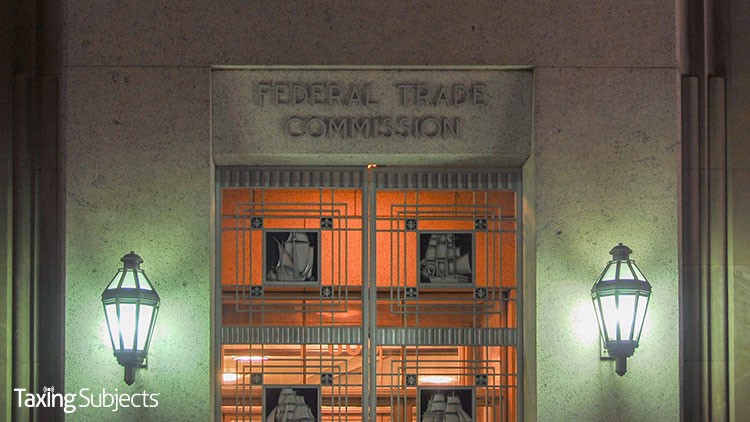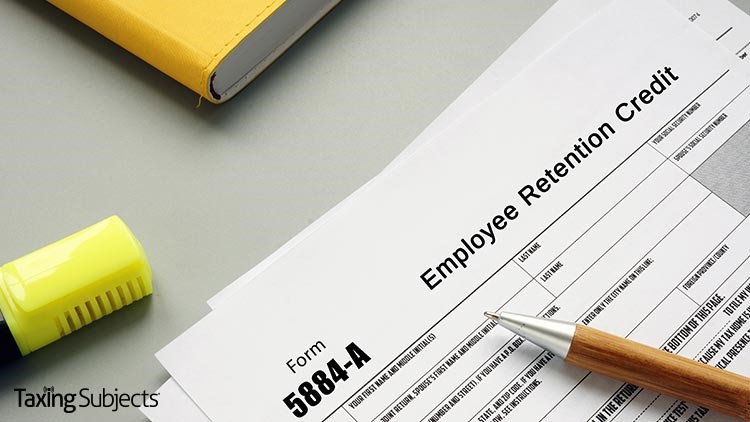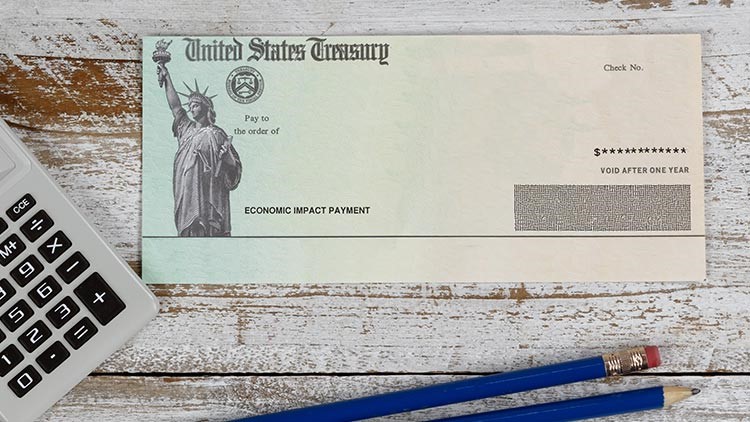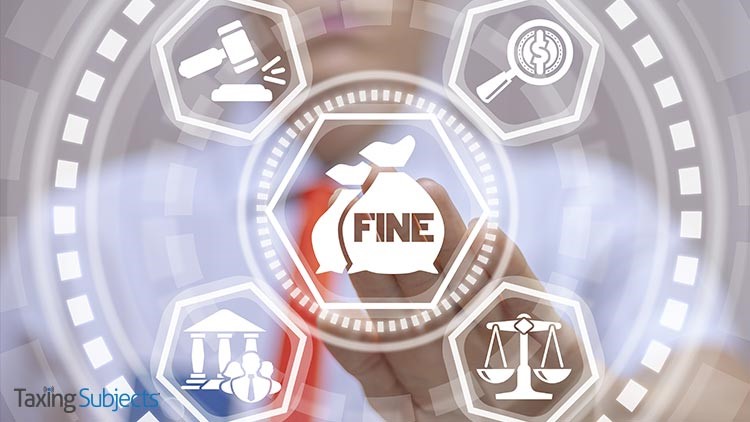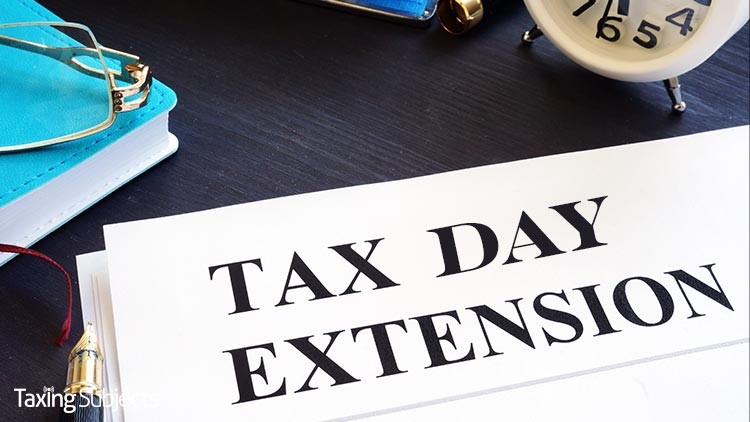by | Mar 26, 2021 | Tax Tips and News
The CARES Act was the first of three major COVID-relief packages that have infused the US economy with stimulus funds provided for items like direct payments, new and expanded tax credits, forgivable business loan programs, and extended unemployment insurance. Identity thieves responded by deploying a host of scams that try to steal those federal dollars from hard-hit Americans, leading to a near-constant stream of alerts from the Internal Revenue Service and the Federal Trade Commission.
This week, an FTC warning focuses on a new phishing threat targeting unemployment benefits. As the ambulance chasers of the criminal underworld, identity thieves leap at every opportunity to steal information and money from victims of natural disasters and financial crashes. And they see the millions of dollars in unemployment insurance as the perfect opportunity to line their own pockets.
How are identity thieves targeting unemployment compensation?
The FTC says that identity thieves have built fake unemployment websites to trick visitors into providing sensitive personal and financial information. To ensure their victims actually land on these sites, the scammers send phishing emails and text messages containing a direct link.
“These messages look like they’re from a state workforce agency (SWA) and give people links to these fake sites,” the agency explains. “When people enter their sensitive personal information on the fake sites, the scammers can use the information for identity theft.” As with other identity theft scams, criminals use victims’ data to fraudulently apply for bank loans, credit cards, and tax refunds—or just sell it on a Dark Web auction.
How can you tell that an email isn’t actually from a state workforce agency?
The FTC says the first sign that an email or text message isn’t actually from a SWA is that it’s unsolicited and purports to be about the current status of your benefits or an “[invitation] to apply.” Those who do receive one of these messages need to take the following steps:
- Never click links in an unexpected text message or email claiming to be from an SWA.
- If you have applied for UI benefits and get a text or email about your application, contact your SWA directly using contact information from its official website.
- If you need to apply for UI benefits, use this link to find your state’s UI application page [https://www.careeronestop.org/localhelp/unemploymentbenefits/unemployment-benefits.aspx]. Follow the directions you find there.
- If you gave someone your sensitive information, visit IdentityTheft.gov/unemploymentinsurance to learn how to protect your credit from scammers or, if necessary, report that someone has misused your personal information to claim UI benefits. “An SWA will not contact you out of the blue,” the FTC explains. SWAs will not send a text message or email inviting you to apply for UI benefits.
Unfortunately, not everyone clearly identifies an unemployment phishing scam before it’s too late. That’s why it’s also important to know the signs that you are already a victim of an unemployment-related phishing scam.
How do I know if I’ve been the victim of unemployment-related identity theft?
An IRS alert from late February notes that receiving a Form 1099-G for unreceived unemployment compensation is one of the first signs of unemployment-related identity theft.
If any of your clients receive an incorrect 1099-G and suspect their information has been stolen, the agency says they shouldn’t file a Form 14039, Identity Theft Affidavit, unless their “e-filed return is rejected because a return using the same Social Security number already has been filed.” However, since unemployment compensation is managed by the states, affected taxpayers still need to take some action: “Contact the issuing state agency to request a revised form.”
This step is important because unemployment benefits are taxable, and taxpayers should only list the amount for which they are liable on their return. That said, the American Rescue Plan Act of 2021 retroactively excludes up to $10,200 in unemployment benefits paid to taxpayers with an adjusted gross income that is less than $150,000 (this limit applies for each spouse in the case of married couples filing jointly).
Important: Unemployment up to $10,200 should not be used to calculate AGI when determining eligibility for the $10,200 exclusion. The IRS Unemployment Compensation Exclusion worksheet was updated on March 23, 2021, to reflect this clarification, and those who already filed a tax-year 2020 return using the March 12 worksheet “should not file an amended return at this time.” The agency says it “will issue additional guidance as soon as possible.”
Sources: “Scammers reportedly using fake unemployment benefits websites as phishing lures,” FTC.gov; “COVID Tax Tip 2021-24,” IRS.gov
– Story provided by TaxingSubjects.com
by | Mar 25, 2021 | Tax Tips and News
It’s easy to imagine that early bird tax filers are punctual in everything they do, maybe even embodying that Ben Franklin wisdom about bedtimes. While they may be the salt of the earth—generally making filing season just a little easier for tax pros—some may get a little impatient when it comes to their refund status. The good news is that the IRS “Where’s My Refund?” tool makes it easy for taxpayers to check their refund status, so you can get back to the mountain of returns sitting on your desk.
How do taxpayers use the “Where’s My Refund?” tool?
The IRS says taxpayers can access the “Where’s My Refund?” tool in two places: IRS.gov/Refunds and the IRS2Go Mobile App.
If on IRS.gov/Refunds, simply scroll down until you find the blue Check My Refund Status button, click it, and—according to the page—be ready to supply the following information:
- Social security number or ITIN
- Your filing status
- Your exact refund amount
The IRS2Go Mobile App is available for download on Amazon, Apple, and Google devices, and checking your refund status still requires the above information. That said, the app has additional features that will let taxpayers make payments, check IRS social media and newsletters, and generate security codes for other IRS accounts.
The agency says “Where’s My Refund?” will display that information after receiving the taxpayer’s return—though it’s available much faster for those who file electronically:
- E-filed returns display refund status within 24 hours
- Paper-filed returns display refund status within 4 weeks
As for what the tool actually displays, the IRS says users will see one of three possible statuses:
- Return Received
- Return Approved
- Return Sent
Regardless of what an individual refund status happens to be, the IRS stresses that calling to ask about a return or request transcript won’t make things go faster (something you can relate to, I’m sure). That said, there are some legitimate reasons that can cause a logjam in the refund process.
What causes refund delays?
In addition to paper-filed returns being slower to arrive and process, the IRS notes four things that can slow down the refund process:
- The return may include errors or be incomplete.
- The return could be affected by identity theft or fraud.
- The return includes a claim for the Earned Income Tax Credit or Additional Child Tax Credit.
- The time between the IRS issuing the refund and the bank posting it to an account since many banks do not process payments on weekends or holidays.
If there’s a problem with a taxpayer’s return—from incorrect info to duplicate returns—the IRS will reach out to the taxpayer. And, lucky for your clients, paid tax return preparers can often diagnose problems based on error codes they see after e-filing. (For example, a duplicate return error could mean the client is the victim of identity theft.)
Source: IR-2021-60
– Story provided by TaxingSubjects.com
by | Mar 24, 2021 | Tax Tips and News
The sweeping American Rescue Plan Act of 2021 may have greenlit the third round of economic impact payments, but it also includes changes to several tax credits—many of which were designed to provide relief to struggling Americans whose finances took a hit during the pandemic. One of those affected tax credits helps both employees and businesses: the employee retention credit, or ERC.
As the name suggests, the ERC provides a tax credit to businesses that keep their employees on payroll during coronavirus-related lockdowns and closures. It was created by the CARES Act, and the Taxpayer Certainty and Disaster Tax Relief Act increased the amount of the credit and extended it until June 30, 2021. The American Rescue Plan makes additional changes, like extending it to the end of the year and adding a new type of qualifying business.
What are some of the changes to the employee retention credit?
The ERC can now be claimed by eligible employers for wages paid after March 12, 2020 and before January 31, 2022, providing a refundable credit of up to $7,000 (70 percent of qualifying wages up to $10,000) against employment tax for wages paid to each employee in a given calendar quarter.
Paragraph (2)(A) of the new section added to the Internal Revenue Code—3134 Employee Retention Credit for Employers Subject to Closure due to COVID-19—generally defines eligible employers as those:
- which was carrying on a trade or business during the calendar quarter for which the credit is determined under subsection (a), and
- with respect to any calendar quarter, for which—
- the operation of the trade or business … is fully or partially suspended during the calendar quarter due to orders from an appropriate governmental authority limiting commerce, travel, or group meetings (for commercial, social, religious, or other purposes) due to the coronavirus disease 2019 (COVID–19),
- the gross receipts (within the meaning of section 448(c)) of such employer for such calendar quarter are less than 80 percent of the gross receipts of such employer for the same calendar quarter in calendar year 2019, or
- the employer is a recovery startup business
New businesses that were started in the early days of the pandemic can also claim the ERC on their tax year 2021 return. Drake Software Education Tax Team Lead Amanda Watson says these “recovery startup businesses” only need to meet two criteria:
- First opened for business after February 15, 2020
- Gross receipts do not exceed $1,000,000
Since RSBs don’t have a three-year period prior to the calendar quarter in which they want to claim the ERC, they instead use the entire amount of time the company has existed to determine whether their gross receipts exceed the threshold. The other difference is an additional cap on the amount that an RSB can claim.
“Like other businesses claiming the ERC, it’s equal to 70 percent of qualified wages limited to $10,000 per employee per quarter ($7,000 credit per employee) for RSBs,” Amanda explains. “What’s different is that—after applying those normal limits—the max credit for each RSB employer is $50,000 per quarter, no matter how many qualifying employees the RSB may have.”
Important: The IRS has not yet released official guidance for the employee retention credit changes found in the American Rescue Plan Act of 2021. The Employee Retention Credit page on IRS.gov even notes that it doesn’t contain current information, instructing visitors to “check back later for updates to [the] page.” So, be sure to frequently check the IRS News page for future guidance on this credit and others.
Source: H.R. 1319
– Story provided by TaxingSubjects.com
by | Mar 24, 2021 | Tax Tips and News
As the old phrase goes, things are looking up.
The Internal Revenue Service says more Economic Impact Payments (EIP3) are coming this week—a second round that will include paper checks and prepaid debit cards.
Taxpayers getting direct deposits will see a deposit date of Wednesday, March 24, with some recipients getting their deposits even sooner. Some of those may be shown as provisional or pending deposits.
The IRS says “a large number of this latest batch of payments will also be mailed, so taxpayers who do not receive a direct deposit by March 24 should watch the mail carefully in the coming weeks for a paper check or a prepaid debit card, known as an Economic Impact Payment Card, or EIP Card.”
The good news: No action is needed by most people who are eligible for EIP3. But if they want to see the status of their payment, the Get My Payment tool on IRS.gov has that information.
While the IRS is now distributing EIP3 to some taxpayers through the mail, the agency reminds that “the vast majority of taxpayers receiving EIPs will receive [their payment] by direct deposit.” One reason EIP3 will be quickly distributed by direct deposit is a partnership between the IRS and the Bureau of the Fiscal Service.
“The IRS and the Bureau of the Fiscal Service leveraged data in their systems to convert many payments to direct deposits that otherwise would have been sent as paper checks or debit cards,” the IRS says. “This accelerated the disbursement of these payments by weeks.”
Keep an eye on the US Mail
Since the IRS is sending some of payments by mail, the agency is reminding taxpayers who normally receive physical refund checks to keep an eye on their mailbox.
“More people are receiving direct deposits, while those receiving them in the mail may get either a paper check or an EIP Card—which may be different than how they received their previous stimulus payments,” the IRS notes. “IRS and the Treasury Department urge eligible people who have not received a direct deposit to watch their mail carefully during this period.”
But what will the envelopes containing EIP3 checks and debit cards look like? Here’s what the IRS says:
- Paper checks will arrive by mail in a white envelope from the U.S. Department of the Treasury. For those taxpayers who received their tax refund by mail, this paper check will look similar, but will be labeled as an “Economic Impact Payment” in the memo field.
- The EIP Card will also come in a white envelope prominently displaying the seal of the U.S. Department of the Treasury. The card has the Visa name on the front and the issuing bank, MetaBank, N.A. on the back. Information included with the card will explain that this is an Economic Impact Payment. Each mailing will include instructions on how to securely activate and use the card.
Unlike some commercially available prepaid debit cards, EIP cards cannot be reloaded: Once the IRS-loaded funds are spent, that’s it. Those who previously received an EIP card will get a new card for EIP3. However, EIP cards do function like most debit cards in other ways.
“EIP Card recipients can make purchases online or in stores anywhere Visa Debit Cards are accepted,” the IRS explains. “They can get cash from domestic in-network ATMs, transfer funds to a personal bank account, and obtain a replacement EIP Card if needed without incurring any fees. They can also check their card balance online, through a mobile app, or by phone without incurring fees.”
To learn more about EIP cards, visit EIPcard.com.
What are the basics for EIP3?
The IRS outlines three major points about EIP3:
- In general, most eligible people will get $1,400 for themselves (those filing joint returns will get $2,800) and $1,400 for each of their qualifying dependents claimed on their tax return.
- Eligible families will get a payment based on all of their qualifying dependents claimed on their return, including older relatives like college students, adults with disabilities, parents, and grandparents.
- Unlike the first two payments, the third stimulus payment is not restricted to children under 17.
In this third round, the amount of an eligible individual’s payment will generally be based on their latest processed tax return from the previous two years. According to the IRS, “this includes anyone who registered online at IRS.gov using the agency’s Non-Filers tool last year or submitted a special simplified tax return to the IRS.” Taxpayers who have already filed this year will have their tax-year 2020 return information used instead.
As with EIP1 and EIP2, most recipients of federal benefits will automatically receive EIP3, like those provided by the following:
- Social Security Administration
- Railroad Retirement Board
- Veterans Administration
However, the IRS says that some non-filers may still need to file a return to claim the dependent portion of EIP3. “People in this group should file a 2020 tax return to be considered for an additional payment for their dependent as quickly as possible,” the agency urges.
Another aspect setting this third round of Economic Impact Payments apart from the other two is it’s adjusted gross income (AGI) phase-out range:
- $75,000 – $80,000 for single filers
- $112,500 – $120,000 for heads of household
- $150,000 – $160,000 for married couples filing jointly and qualifying widows and widowers
EIP3 is completely zeroed out for those whose AGI exceeds the top end of the range, which, as the IRS points out, “means that some people won’t be eligible for the third payment even if they received a first or second Economic Impact Payment or claimed a 2020 Recovery Rebate Credit.”
The IRS closes the release by noting that Fact Sheet 2021-05, Updated details about the third round of Economic Impact Payments, contains more information about EIP3.
Sources: More Economic Impact Payments set for disbursement in coming days; taxpayers should watch mail for paper checks, debit cards; Start using your EIP Card
– Story provided by TaxingSubjects.com
by | Mar 23, 2021 | Tax Tips and News
The Internal Revenue Service says it’s pulling out all the stops to come to agreement with taxpayers who owe back taxes. Through its Office of Chief Counsel, the agency announced the significant expansion of its Settlement Days program and proclaimed March 2021 is now “National Settlement Month.”
All hands on deck
These annual Settlement Days are coordinated efforts that aim to resolve cases in U.S. Tax Court. The IRS seeks to give taxpayers who don’t have counsel of their own the chance to get “free tax advice from Low Income Taxpayer Clinics (LITCs), American Bar Association (ABA) volunteer attorneys, and other pro bono organizations.”
To help meet this goal, the IRS has been working with Chief Counsels in every state and the District of Columbia to make sure unrepresented taxpayers across the country have a chance to participate in Settlement Days. Because of the pandemic, the program will once again feature “Virtual Settlement Days” rather than face-to-face meetings.
The IRS notes that taxpayers “can also discuss their Tax Court cases and related tax issues with members of the Office of Chief Counsel, the IRS Independent Office of Appeals, and IRS Collection representatives.” These wider communication channels can help both sides to reach a settlement by giving taxpayers a better idea of what’s needed to support their case.
If a settlement is reached, IRS Collection representatives can discuss potential payment alternatives.
The Virtual Settlement Days structure can also help those taxpayers who decide to go to court, providing them with a better idea of what information they need to be successful.
Settlement Days will address other issues, too
The Taxpayer Advocate Service is also pitching in to expand the types of services offered on Settlement Days.
“Local Taxpayer Advocates and their staff can work with and inform taxpayers about how TAS may be able to assist with other unresolved tax matters, or to provide further assistance after the Tax Court matter is concluded,” the IRS explains. “If a taxpayer experiences difficulties concerning collection, TAS can also assist with collection alternatives.”
How do taxpayers participate in Settlement Days?
There are a few different ways that taxpayers can participate in a VSD event.
“One way is to be notified and invited to attend by the IRS as part of its work with LITCs and pro bono attorneys,” the IRS says. “The IRS proactively identifies and reaches out to taxpayers with Tax Court cases which appear most suitable for this settlement day approach. The IRS also generally encourages taxpayers with active Tax Court cases to contact the assigned Chief Counsel attorney or paralegal about participating in the March VSD events.”
Commissioner Rettig says a taxpayer has nothing to lose by taking part in the Virtual Settlement Day process.
“I strongly encourage all taxpayers who have the ability to participate in a settlement day event to do so because they will understand their own case better while not giving up their day in court if they so choose,” Rettig said.
This year’s program will be offered at several new locations, like the following:
- Albuquerque
- Billings
- Buffalo
- Cheyenne
- Cleveland
- Denver
- Des Moines
- Indianapolis
- Little Rock
- Milwaukee
- Nashville
- Peoria
- Omaha
- Reno
- Sacramento
- San Diego
- San Jose
Last year’s foray into virtual meetings not only provided the blueprint for this year’s Settlement Days event, but it has been used to help provide resolution services to taxpayers all year long.
“Chief Counsel and LITCs have successfully used VSD events to help more than 259 taxpayers resolve Tax Court cases without having to go to trial,” the IRS says. “This saves taxpayers and the government time and money.”
The IRS stresses, however, that this help isn’t exclusive to Settlement Days: Chief Counsel attorneys and paralegals who are assigned to cases are always available to settle cases outside of the VSD program.
Source: IRS Office of Chief Counsel unveils National Virtual Settlement Days effort this year to reach more taxpayers in more parts of the nation
– Story provided by TaxingSubjects.com
by | Mar 18, 2021 | Tax Tips and News
Much like last year, the 2021 filing season has been characterized by challenges. The season started later than usual, tax professionals and taxpayers continue to manage pandemic safety precautions, and guidance is pending for the retroactive tax law changes included in the American Rescue Plan Act of 2021 that President Biden signed into law last week. So, it comes as no surprise that the Internal Revenue Service today announced the federal filing and payment deadline is delayed by a month.
Americans now have until May 17, 2021 to file their tax year 2020 federal income tax return and pay any tax owed. The change to the payment deadline is notable, since “individual taxpayers will automatically avoid interest and penalties on the taxes paid by May 17.” While taxpayers can still request an October 15 filing extension, the IRS notes that it won’t affect the new payment deadline.
Estimated tax payment deadlines, winter storm disaster relief deadlines, and state filing deadlines are not affected
The new deadline may grant additional time to file and pay federal income tax for tax year 2020, but the IRS says it does not affect the following:
- April 15, 2021 quarterly estimated tax payment deadline
- June 15, 2021 federal filing and payment deadline granted to victims of winter storms in Louisiana, Oklahoma, and Texas
- State and D.C. income tax deadlines
Since “most taxpayers automatically have their taxes withheld from their paychecks and submitted to the IRS by their employer,” the quarterly estimated tax payment deadline predominantly affects these types of income:
- Self-employment income
- Interest
- Dividends
- Alimony
- Rental income
Last year when the federal filing deadline was delayed, many—but not all—states that collect income tax changed their filing deadlines to match the federal date. So, “the IRS urges taxpayers to check with their state tax agencies for those details.”
Be sure to regularly visit the News section of the IRS website for further guidance and updates.
Source: IR-2021-59
– Story provided by TaxingSubjects.com
